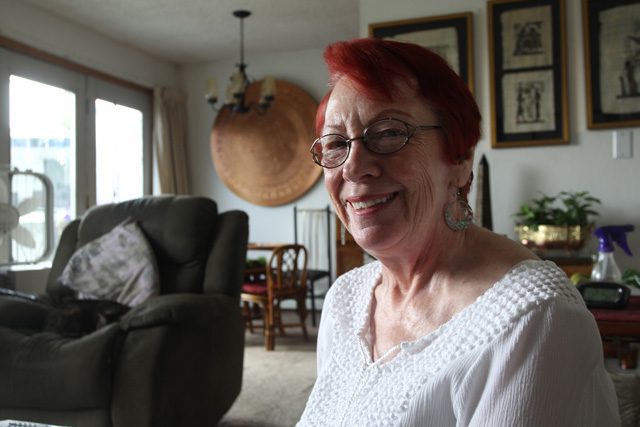Seniors are the fastest growing segment of Alaska’s population.
It had almost become a routine decision for Trudy Brown: medical treatment or food.
She could either go to her doctor’s appointment or to the grocery store, but she couldn’t afford transportation for both.
So, she made her choice.
“My taxi bill one month was almost $200. It was doctor visits and the hospital. It was a real bad month. It was just awful. It was adding up,” she said. “We went without groceries that month. It was that bad.”
Brown’s predicament isn’t entirely unique among the senior population in Anchorage. Between scheduling around public transit, waiting for a taxi and feeling like a burden on family members, getting to and from appointments can be more than a little stressful. But what’s most troubling is knowing that getting to and from doctor visits might mean going hungry.
“I am on a strict income and I am disabled so it gets real hairy if the transportation costs get high, and if you waste it on a cab it really goes fast,” Brown said. “I shop at Fred Meyer and it is $10 from here to there [by taxi] and if the traffic is bad it can go up to $15. Public transportation is impossible. I can’t carry all the stuff home.”
Earlier this year, Brown and many others received a timely boost when The Salvation Army Alaska Division was selected as a grant recipient of the 2018 Uber Pacific Northwest Community Impact Initiative. The $5,000 in-kind Uber ride credits enabled The Salvation Army to restart its ride program for homebound seniors in the Older Alaskans Program (OAP), which was previously discontinued due to funding restraints.
Brown is grateful she can now utilize the service, because it’s literally putting food on her table.
“It is incredible,” she said. “I definitely recommend this to others. It has made things so much easier and cheaper.”

OAP Program Director Terry Chubin agrees that the Uber grant is helping put food on the tables of Anchorage’s elderly—not only in cost savings for transportation, but because many OAP clients are able to get to places with access to healthy food.
“It’s food banks, grocery stores and farmers’ markets,” Chubin said. “The food bank has seniors that call and say, ‘I can’t get to the food bank because I don’t have any money for a taxi.’ So, the food bank is putting out the word and letting people know to call OAP if they cannot get a ride on the food distribution days to come get their food boxes.”
Moreover, Chubin noted that the ride affords seniors the opportunity to counter isolation and just be in the company of their neighbors.
“We have some of our Alaska Native elders who are able to go to the Elders Program for lunch. They get to go to a congregate meal site and are able to socialize and get out of their home and have a hot meal,” Chubin said. “The mission of OAP is to feed our seniors.”









